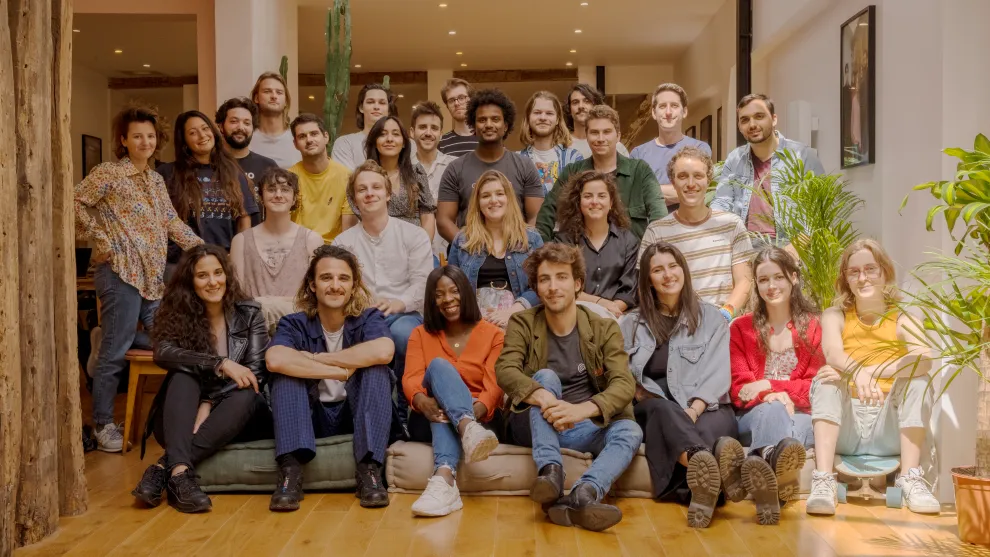5:00 PM GMT•February 17, 2024
Last Monday, while I was at a brewery in Phoenix, 2,000 miles away from home, I stumbled upon Walter the Producer, an indie musician based in Boston. His music, absent from the playlists I typically follow, boasts less than 150,000 monthly listeners on Spotify. Without the chance Shazam encounter, I might have never crossed paths with his work.
Discovering new music has become akin to a scavenger hunt. Even Walter the Producer playfully acknowledges this in his Spotify artist bio, humorously warning, “If you gatekeep me, I will hunt you down.” Historically, financially backed artists held an advantage over independent musicians in terms of promotion. However, shifts in Spotify algorithms, the ascent of viral TikTok tracks, and strategic changes at outlets like Pitchfork and Rolling Stone have compounded the challenge.
The Paris-based startup Groover, founded in 2018, emerged in response to this evolving landscape. It serves as a platform for independent artists seeking to promote themselves by enabling them to submit music to individual curators. These curators offer feedback and amplify music they deem noteworthy. Romain Palmieri, co-founder and CEO of Groover, shared that the startup was born out of the founders’ collective experiences grappling with promotion challenges in their music careers.
Groover recently secured an $8 million Series A round led by OneRagtime, Techmind, Trind, and Mozza Angels. Palmieri outlined plans to utilize the funding to further expand into the U.S., its largest market, and introduce new artist-centric features, including coaching and promotional resources.
The unique business model of Groover stands out: its network of over 3,000 music curators establishes their rates, with Groover splitting each transaction evenly. Palmieri highlighted that if a curator fails to review a song within seven days, the musician receives a refund, though 90% of requests are addressed within this timeframe.
While the pay-to-play model may disappoint some, especially as traditional music journalism contracts, Palmieri emphasized its necessity for many independent artists. They often face the choice of relentless pitching to music publications or investing in pricey PR, neither guaranteeing success.
Palmieri underscored that Groover benefits music curators as well, providing them with compensation for their efforts and simplifying the discovery process amid a deluge of new music.
The startup ecosystem is witnessing similar initiatives like GigFinesse, which streamlines gig bookings and payments for musicians and venues alike.
As a listener, navigating the realm of new music has become increasingly challenging. While platforms like Groover and GigFinesse offer pragmatic solutions, they also foster a sense of community vital for both artists and industry insiders. Every musician, after all, starts somewhere.

